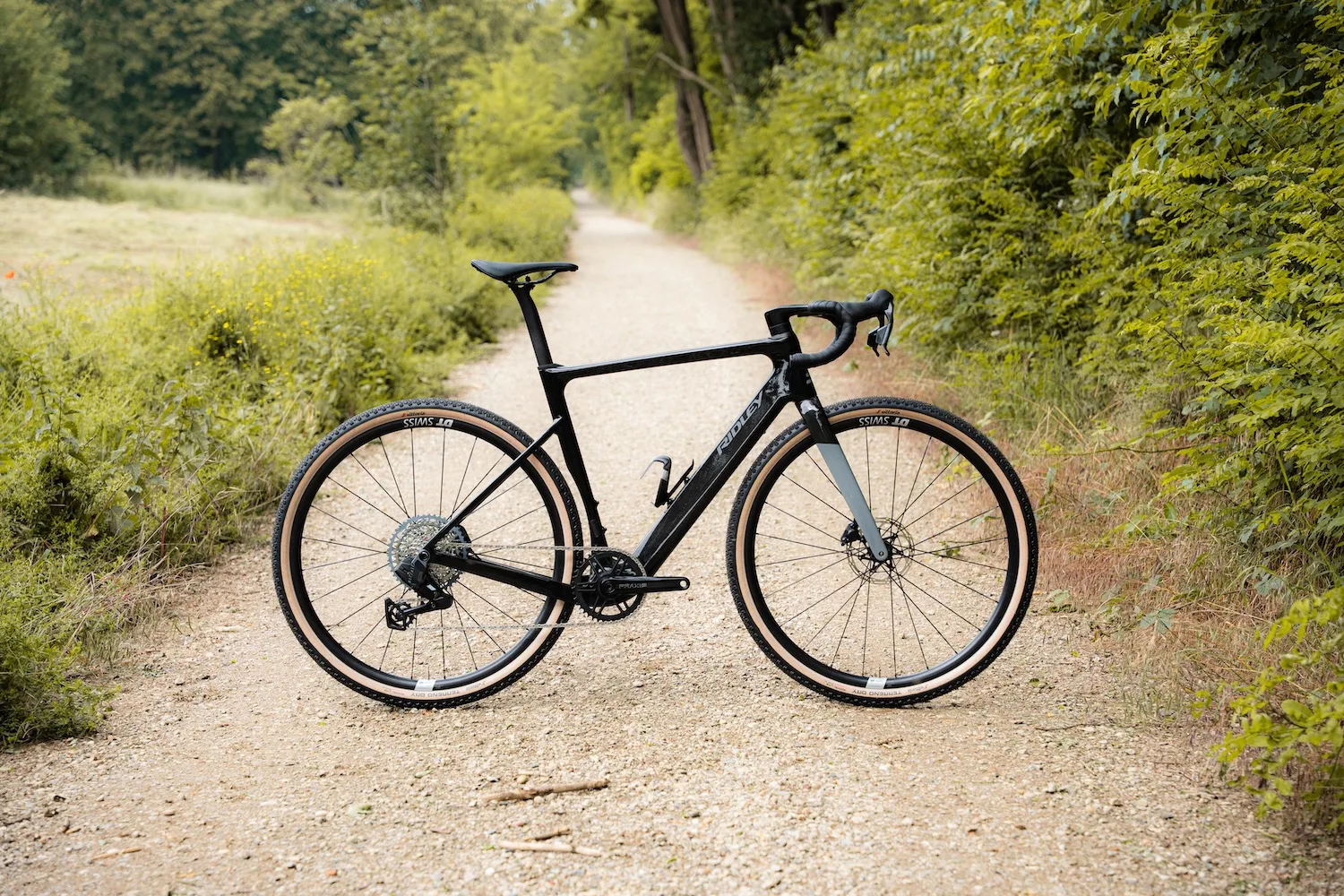Late last year, Ridley added the ASTR RS gravel race bike to its growing lineup of off-road bikes. This new model combined big tire clearance with an aero-optimized frame and racy geometry to tackle modern gravel courses. Just last week, Ridley launched its second e-bike model ever, electrifying the ASTR with the brand new TQ-HPR40 drive system to create the E-ASTR. Along with the new Canyon Edurance:ONFly e-road bike, the E-ASTR is one of the very first models to incorporate this new lightweight drive system.
According to Ridley, “The E-ASTR maintains the sporty, natural ride character of its predecessor — with that little bit extra, all without compromising smoothness or control.” With the compact, lightweight TQ motor, slim battery, and integrated controls, the E-ASTR barely looks like an e-bike at all. With light assist of up to 40 Nm of torque and 200 watts of peak power, the E-ASTR aims to provide a very natural ride experience, with just a little boost when you need it.
Ridley E-ASTR Details
Based on the non-electric version of the ASTR, the carbon-framed E-ASTR has a nearly identical silhouette. The downtube looks a tad bulkier, but if you didn’t compare it side by side with the non-electric version, you might just think it has oversized tubing. It’s got internal cable routing through the headset, and there are two mounts inside the front triangle for bottle cages or the optional range extender. It has a UDH for drivetrain compatibility, and the frame supports the use of front derailleurs.
With modern gravel tires trending wider at an alarming rate, the ASTR family of bikes hits the current mark. With a claimed tire clearance of up to 52 mm, riders should be able to fit some pretty big meats on the E-ASTR and its non-electric counterparts.
It comes in five frame sizes, so most riders should be able to find a proportional fit. Ridley tells us the E version of the ASTR “shares the exact same geometry as the ASTR and ASTR RS.” The 71.5-degree head tube and 74-degree seat tube angles promote sharp steering and solid power transfer. A bottom bracket drop of 75 mm pairs with 425 mm chainstays to try and balance high-speed stability and agility. For more info on the ASTR geometry, check out Cory’s first look article from last year.
Interestingly, beyond the weight of the TQ-HPR40 drive system, we were not supplied with or able to find complete bike weights for the E-ASTR builds.

TQ-HPR40 Drive System
As mentioned, the E-ASTR is one of the first models to integrate the new TQ-HPR40 drive system into its design. We covered this new drive system in greater detail when it launched last week, and Cory has already shared his ride impressions in his Canyon Endurace:ONFly First Look review. You can check out either of those articles for more info.
If you’d rather not, here’s the quick rundown. The new HPR40 motor is a compact and lightweight drive unit designed to provide light assistance for e-road and e-gravel bikes. It leverages the brand’s unique Harmonic Pin Ring Transmission design (HPR) to create an impressively small and light motor. It’s so small that it’s barely even noticeable, and combined with the slim 290 Wh battery and integrated controls, the whole system weighs just 2,700 grams (5.95 lbs.).
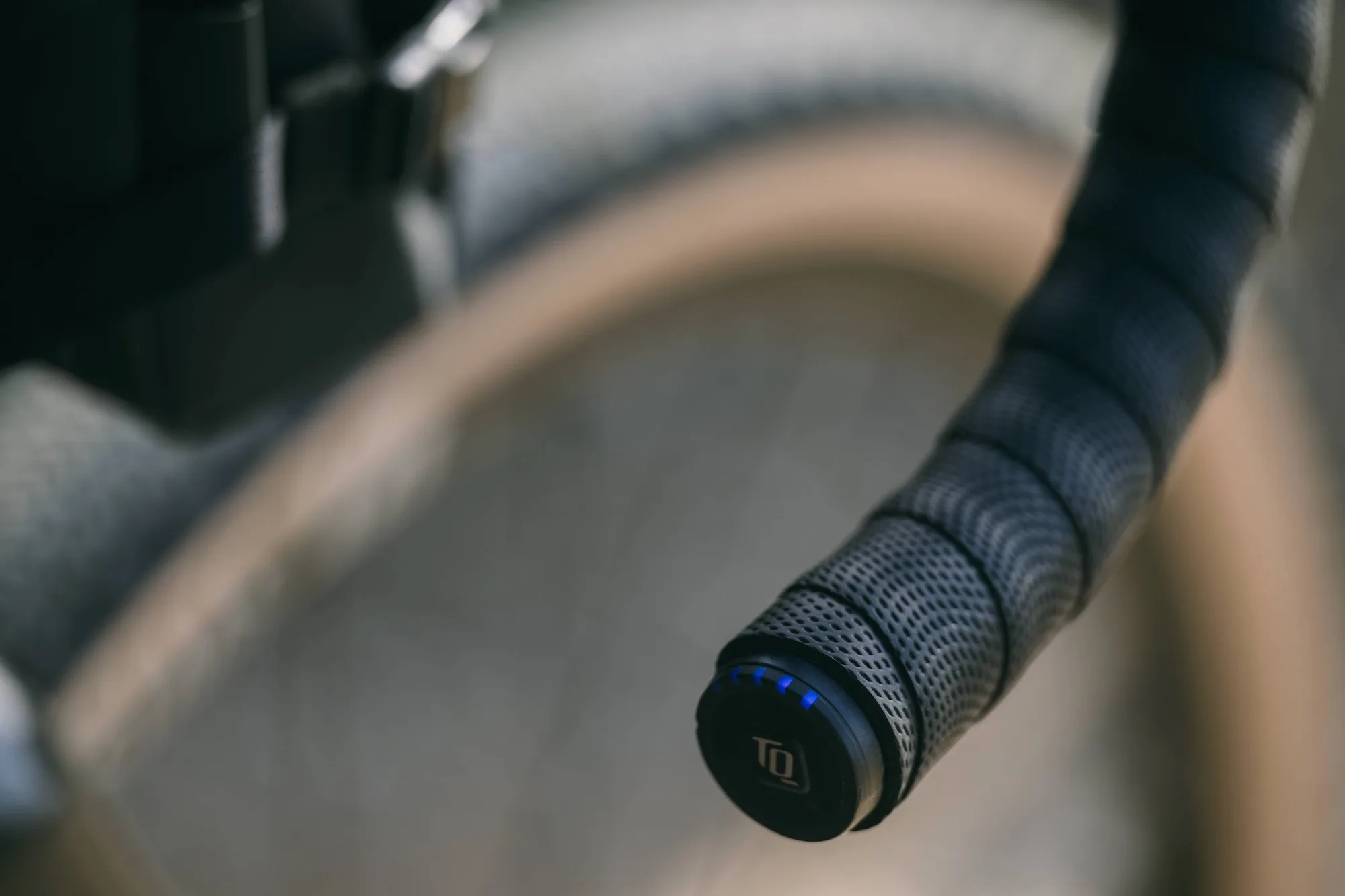
Still, the HPR40 puts out up to 40 Nm of torque and 200 watts of peak power. While that’s less than half of full power motors, that’s also the point. This motor is intended to provide light support to your pedaling efforts with minimal weight penalty, no drag, and as little impact on the bike’s handling as possible. It also intends to have virtually no visual impact, with the motor, slim battery in the downtube, hidden button controls, and bar plug “display” creating one of the most integrated systems on the market.
TQ’s 290 Wh battery is both slim and lightweight at just 1.42 kg, but it should still provide plenty of juice for the light assist HPR40 drive unit. It’s housed in the downtube, which is barely any bigger than the non-electric version. Those interested in adding capacity have the option to do so with the 160 Wh range extender.
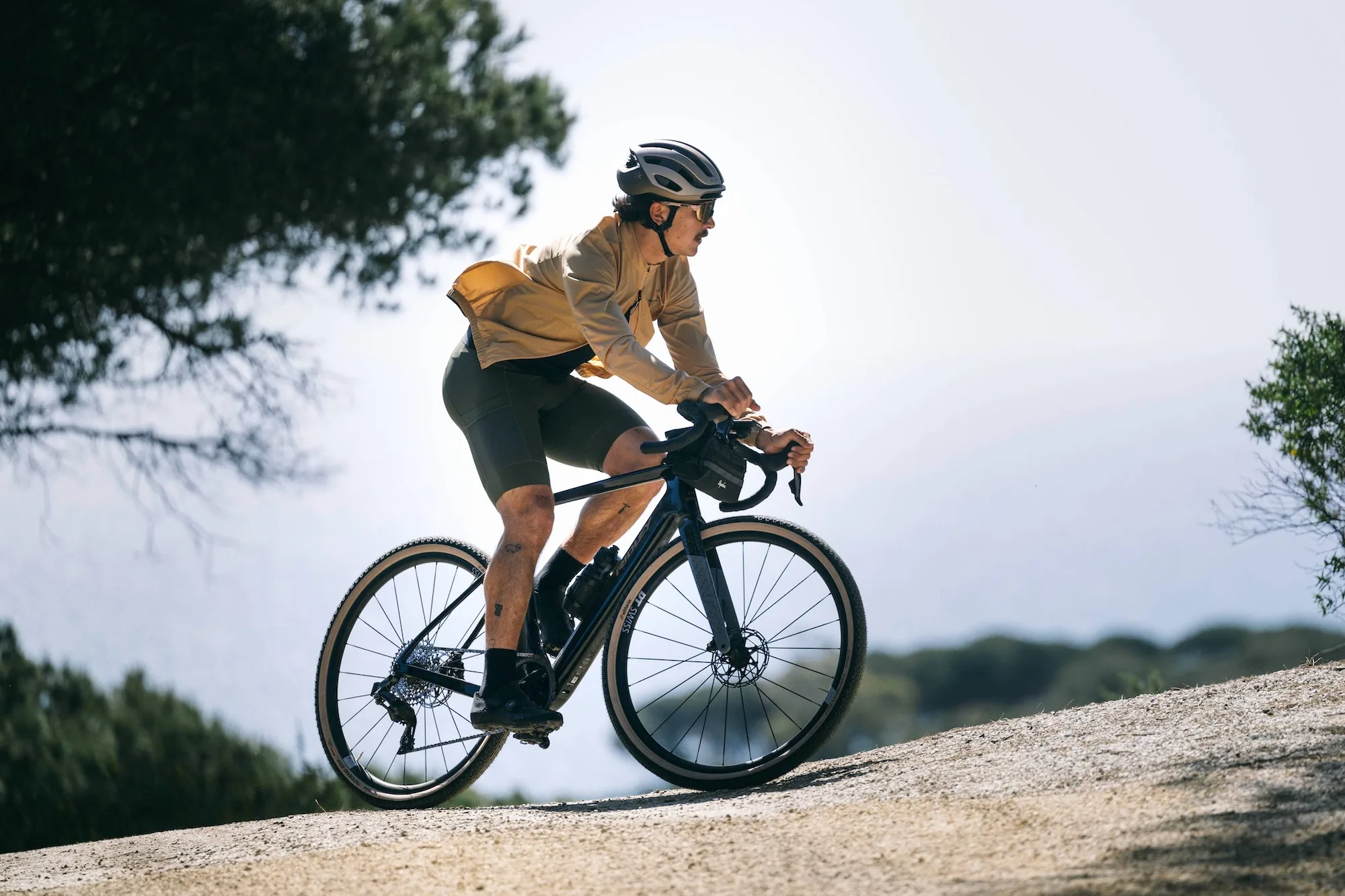
Ridley E-ASTR Build Options
At present, the new E-ASTR is available in three complete builds with either SRAM or Shimano components. They start at 7,199 € for the SRAM Apex XPLR AXS 1 x 12. The mid-range option is the 8,199 € SRAM Rival XPLR AXS 1 x 13 build, and the range tops out at 8,899 € with a Shimano GRX 2 x 12 setup.
Ridley also provides the option to choose your frame color and a variety of components to customize your new ride through its custom configurator. Going the configurator route generally adds to the cost of your complete build, but allows you to choose from a selection of parts right out of the gate, as opposed to swapping them out once you’ve got the bike.
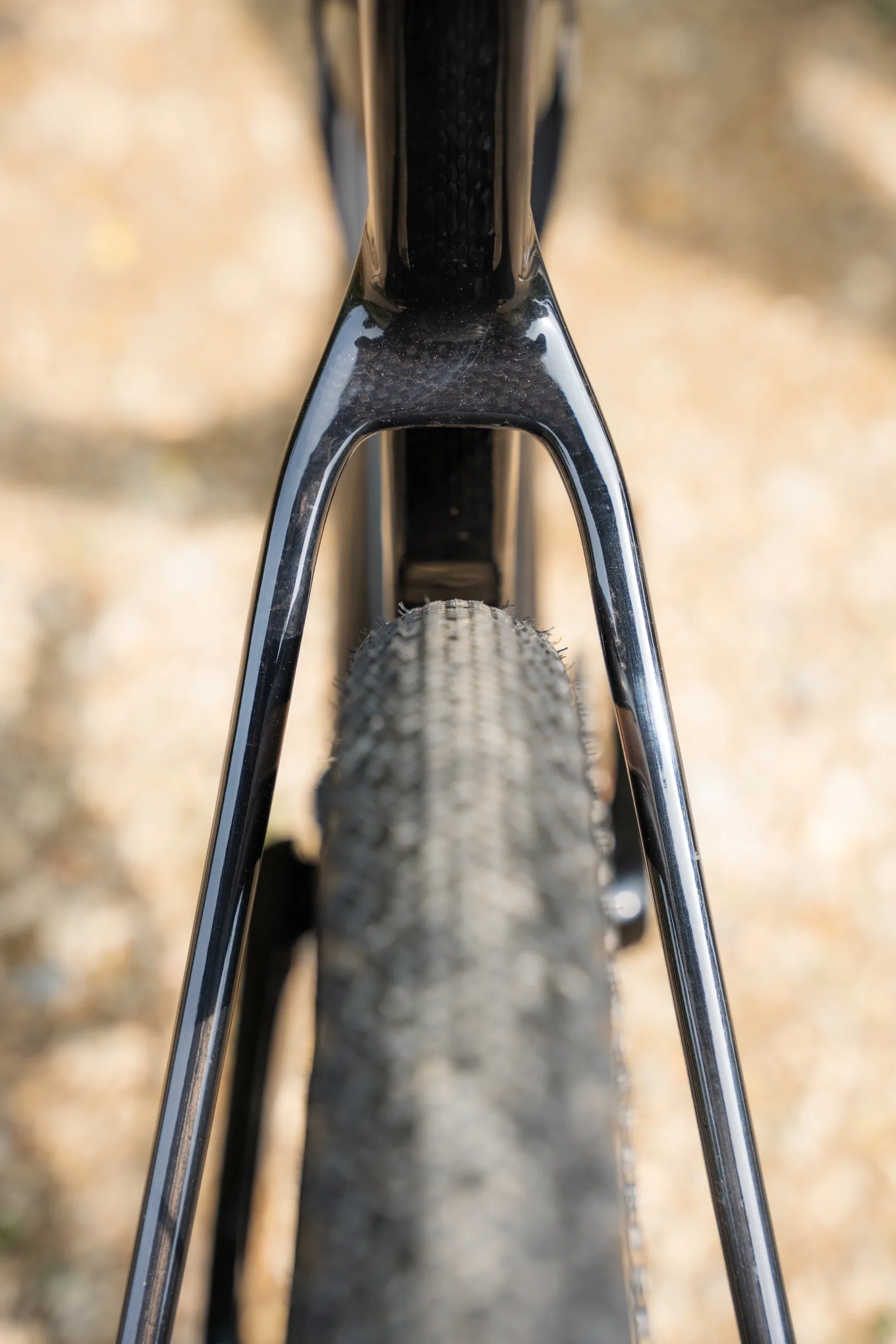
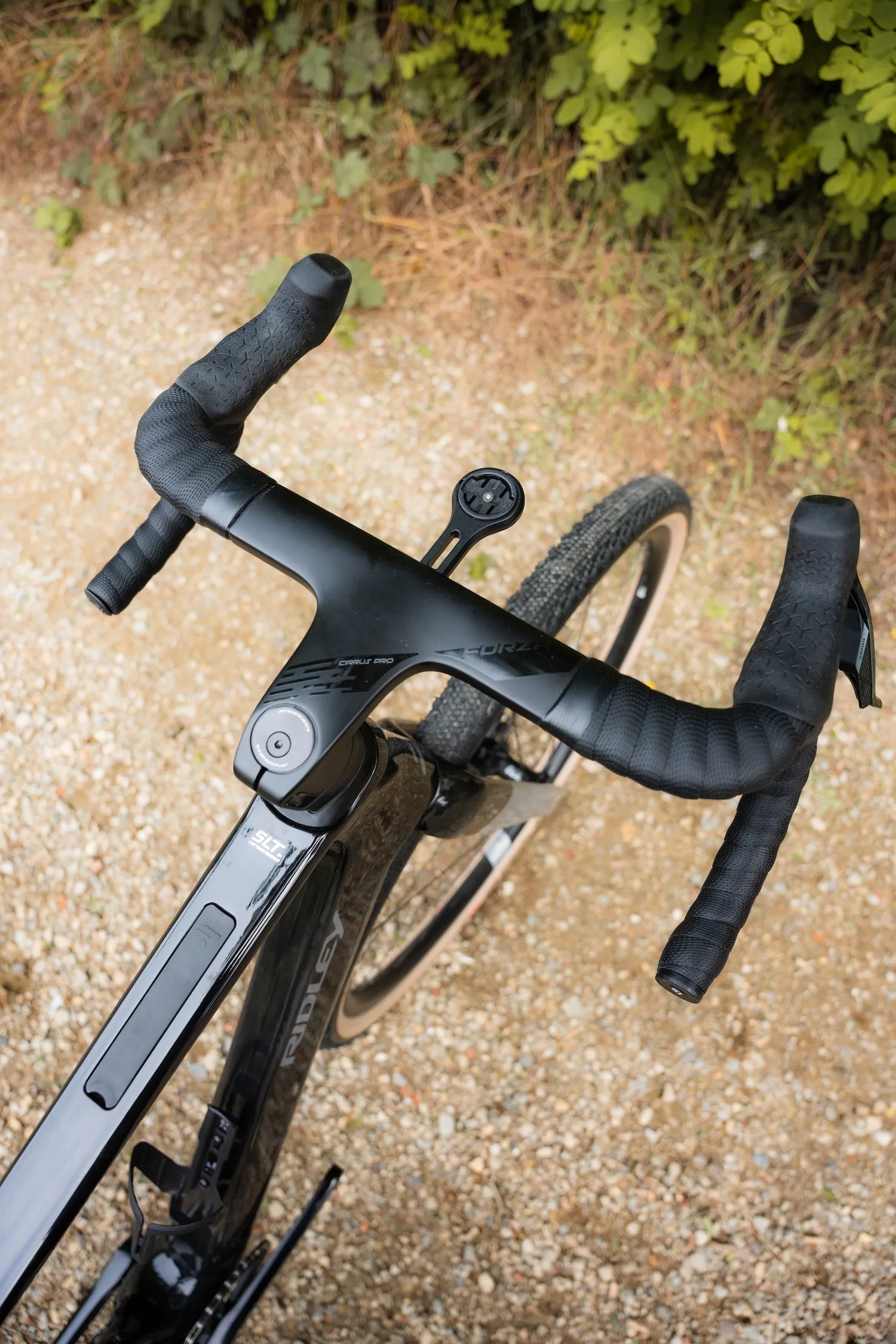
E-ASTR Apex XPLR AXS: 7,199 €
The base build of the E-ASTR uses the same frame, fork, and electric bike components as its more expensive siblings. It has a wireless 1 x 12 SRAM XPLR AXS drivetrain and Apex brakes. It rolls on DT Swiss G1800 S[line gravel wheels with Vittoria Terreno Dry 700 x 47 mm tires. The cockpit consists of a Deda Superzero alloy bar along with a Selle Italia Model Y saddle.
E-ASTR Rival XPLR AXS: 8,199 €
Bumping up a price tier essentially steps you up a performance level in SRAM’s groupset hierarchy. The Rival XPLR AXS comes with its namesake drivetrain in the latest 1 x 13 configuration. Otherwise, the stock wheels and tires as the same as the Apex build, but it comes with a slightly different cockpit setup in the form of a Forza Cirrus Pro Integrated handlebar/stem, and a Selle Italia Novus Boost Superflow saddle.
E-ASTR GRX800 Di2 2x: 8,899 €
If you prefer a 2-by setup, the GRX800 Di2 sports the Shimano GRX 2 x 12-speed wireless drivetrain. It also steps up to some 40 mm deep Forza Skiron CG40 wheels, as well as the integrated Forza cockpit and Novus Boost Suprflow saddle mentioned in the Rival build.

Ridley E-ASTR Availability
The new E-ASTR is available now. As with most bikes, availability and retail sales will vary by region, so check out the Ridley website to find a dealer near you.
